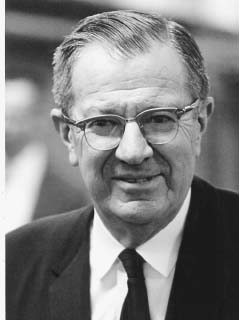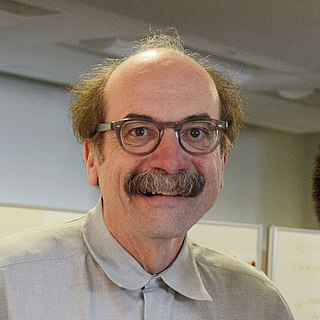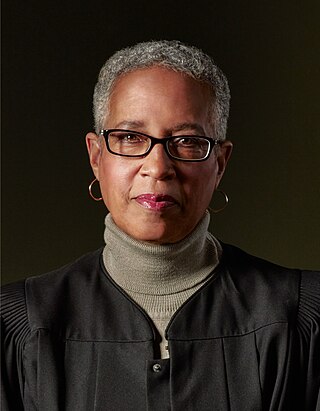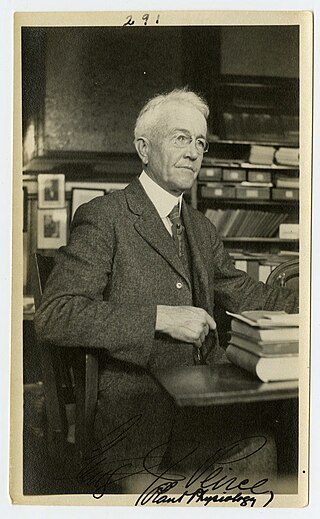Related Research Articles

Thorstein Bunde Veblen was an American economist and sociologist who, during his lifetime, emerged as a well-known critic of capitalism.

A Veblen good is a type of luxury good, named after American economist Thorstein Veblen, for which the demand increases as the price increases, in apparent contradiction of the law of demand, resulting in an upward-sloping demand curve. The higher prices of Veblen goods may make them desirable as a status symbol in the practices of conspicuous consumption and conspicuous leisure. A product may be a Veblen good because it is a positional good, something few others can own.

The Theory of the Leisure Class: An Economic Study of Institutions (1899), by Thorstein Veblen, is a treatise of economics and sociology, and a critique of conspicuous consumption as a function of social class and of consumerism, which are social activities derived from the social stratification of people and the division of labor; the social institutions of the feudal period that have continued to the modern era.
Institutional economics focuses on understanding the role of the evolutionary process and the role of institutions in shaping economic behavior. Its original focus lay in Thorstein Veblen's instinct-oriented dichotomy between technology on the one side and the "ceremonial" sphere of society on the other. Its name and core elements trace back to a 1919 American Economic Review article by Walton H. Hamilton. Institutional economics emphasizes a broader study of institutions and views markets as a result of the complex interaction of these various institutions. The earlier tradition continues today as a leading heterodox approach to economics.

Frederick Emmons Terman was an American professor and academic administrator. He was the dean of the school of engineering from 1944 to 1958 and provost from 1955 to 1965 at Stanford University. He is widely credited as being the father of Silicon Valley.

The American Association of University Professors (AAUP) is an organization of professors and other academics in the United States. AAUP membership includes over 500 local campus chapters and 39 state organizations.

The technocracy movement was a social movement active in the United States and Canada in the 1930s which favored technocracy as a system of government over representative democracy and concomitant partisan politics. Historians associate the movement with engineer Howard Scott's Technical Alliance and Technocracy Incorporated, prior to the internal factionalism that dissolved the latter organization during the Second World War. Technocracy was ultimately overshadowed by other proposals for dealing with the crisis of the Great Depression. The technocracy movement proposed replacing partisan politicians and business people with scientists and engineers who had the technical expertise to manage the economy. But the movement did not fully aspire to scientocracy.
Technocracy is a form of oligarchy government in which the decision-makers are selected based on their expertise in a given area of responsibility, particularly with regard to scientific or technical knowledge. The experts in the technical details of specific issues, who presumably best understand both the problems at hand and how various technological redresses can improve the society at large. Technocracy follows largely in the tradition of other meritocracy theories and assumes full state control over political and economic issues. Technocracy bills itself as pragmatic, dispassionate and rational, free of the strife of political parties and factions as it pursues its optimal ends.

Howard Scott was an American engineer and founder of the Technocracy movement. He formed the Technical Alliance and Technocracy Incorporated.

Sidney Dean Townley was an American astronomer and geodeticist. He was a professor at Stanford University from 1911 until 1932. Among many other posts, Townley served as an instructor of astronomy at the University of Michigan and the University of California, Berkeley he was also the president of the Astronomical Society of the Pacific in 1916. Throughout the course of his career he published around 100 academic papers and edited many more, he was recognized for his excellent editorial skills.
The Theory of Business Enterprise is an economics book by Thorstein Veblen, published in 1904, that looks at the growing corporate domination of culture and the economy.

John Patrick Diggins was an American professor of history at the University of California, Irvine, Princeton University, and the City University of New York Graduate Center.

David M. Kelley is an American engineer, designer, businessman, and educator. He is co-founder of the design firm IDEO and a professor at Stanford University. He has received several honors for his contributions to design and design education.
Martha Smeltzer West an American attorney and legal scholar who served as general counsel for the American Association of University Professors and Professor Emerita at the UC Davis School of Law. In 1998, she won California's first federal grant under the Violence Against Women Act, using the money to found the Family Protection and Legal Assistance Clinic at UC Davis Law School. West was the lead author of the 2005 white paper "Unprecedented Urgency: Gender Discrimination in Faculty Hiring at the University of California" and of the 2006 AAUP report "Organizing around Gender Equity."

The Palo Alto Baylands Nature Preserve, known officially as the Baylands Nature Preserve, is the largest tract of undisturbed marshland remaining in the San Francisco Bay. Fifteen miles of multi-use trails provide access to a unique mixture of tidal and fresh water habitats. The preserve encompasses 1,940 acres in both Palo Alto and East Palo Alto, and is owned by the city of Palo Alto, California, United States. It is an important habitat for migratory shorebirds and is considered one of the best birdwatching spots on the West Coast.

Harry Walter "H.W." Tyler was an active member of the science and education scholarly communities in the late 19th and early 20th centuries. After receiving his Bachelor of Science from the Massachusetts Institute of Technology (MIT) in 1884, he taught and served in various administrative positions at the Institute from 1884 until his retirement in 1930.

LaDoris Hazzard Cordell is an American retired judge of the Superior Court of California, and a retired Independent Police Auditor for the city of San Jose, California.
Thomas Thorstein Veblen is an American forest ecologist and physical geographer known for his work on the ecology of Nothofagus forests in the Southern Hemisphere and on the ecology of conifer forests in the southern Rocky Mountains of the U.S.A. He is an Arts and Sciences College Professor of Distinction at University of Colorado at Boulder, USA (2006).

George James Peirce was an American botanist known for his work on plant physiology. He was an active member of the Palo Alto, California community for over 50 years.

The ACLU of Hawaiʻi is an affiliate of the American Civil Liberties Union. As a 501(c)(4) nonprofit organization, it focuses on advocacy for civil rights and civil liberties in Hawaii, American Samoa and Guam.
References
- 1 2 "Toledo Blade - Google News Archive Search". news.google.com. Retrieved 2020-12-06.
- 1 2 3 4 5 6 7 Nilan, Roxanne (2004). "Guido Marx. A Legend in His Own Right". Sandstone & Tile. 28 (1): 15–19.
- ↑ Edwards, JudyAnn Christensen. "Palo Alto has its own Marx brothers". www.paloaltoonline.com. Retrieved 2020-12-06.
- ↑ Marx, Guido H. (1910). "The Problem of the Assistant Professor. III". Science. 31 (796): 488–497. Bibcode:1910Sci....31..488M. doi:10.1126/science.31.796.488. ISSN 0036-8075. JSTOR 1636065. PMID 17800501.
- ↑ Marx, Guido H. (1910). "The Problem of the Assistant Professor". Science. 31 (794): 401–406. Bibcode:1910Sci....31..401M. doi:10.1126/science.31.794.401. ISSN 0036-8075. JSTOR 1636130. PMID 17732790.
- ↑ Marx, Guido H. (1910). "The Problem of the Assistant Professor. II". Science. 31 (795): 441–450. Bibcode:1910Sci....31..441M. doi:10.1126/science.31.795.441. ISSN 0036-8075. JSTOR 1635350. PMID 17797851.
- ↑ Kolins Givan, Rebecca (July 28, 2020). "Acquiescent No More. Tenured and tenure-track professors are finally fighting back". www.chronicle.com. Retrieved 2020-12-06.
- ↑ Akin, William E. (1977). Technocracy and the American dream : the technocrat movement, 1900-1941. Berkeley: University of California Press. ISBN 0-520-03110-5. OCLC 2788196.
- ↑ BELL, DANIEL (1963). "Veblen and the New Class". The American Scholar. 32 (4): 616–638. ISSN 0003-0937. JSTOR 41209141.
- ↑ "ACLU-NC News: vol. 2, no. 10 | CHS Digital Library". digitallibrary.californiahistoricalsociety.org. Retrieved 2020-12-06.
- 1 2 Harper, Dan (2019). Unitarians in Palo Alto, 1891-1934: A Biographical Dictionary (PDF) (Revised Edition. Uncorrected proof. ed.). p. 187.
- ↑ Pope, Ch H.; Willard, J.; Walker, Ch Wilkes. Willard genealogy. Рипол Классик. ISBN 978-5-87280-992-0.